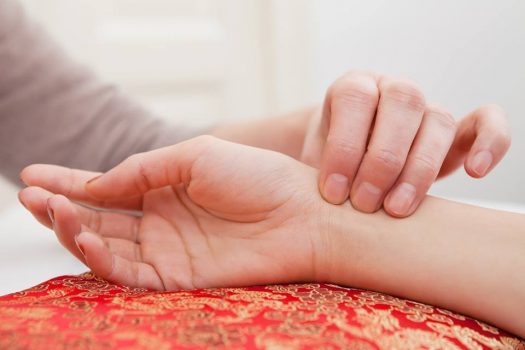
07 Aug 2024 - News
What to Know for Your First Ayurvedic Consultation
Have you ever wondered what happens during an Ayurvedic Consultation?
Reading this article, you’ll know exactly what to expect and how Ayurveda can guide you toward a healthier, more balanced life.
Your Lifestyle Matters
The Ayurvedic Practitioner will ask about your daily habits, diet, sleep patterns, and even your mood. This might seem like a lot, but these details help create a complete picture of your health.
Ayurveda believes that the body, mind, and spirit are connected. Knowing whether you love spicy food or prefer cold drinks helps the practitioner understand your unique constitution, or dosha. The doshas Vata, Pitta, and Kapha are different energies in the body, and your lifestyle choices influence their balance.
Expect questions about your emotions, stress levels, and relationships. Ayurveda values mental and emotional health just as much as physical health. By seeing the whole picture, the practitioner can make recommendations specifically for you, aiming to balance your doshas and improve your overall well-being.
The Tongue Tells All
One of the unique parts of an Ayurvedic consultation is the tongue examination. Your tongue can tell a lot about your internal health. Practitioners look at the color, texture, and coating on your tongue to gather information about your digestion and overall health.
A healthy tongue is usually pink and slightly moist, with a thin coating. Differences can indicate imbalances. For instance, a thick white coating might suggest toxins in your system, while a yellowish coating could mean too much heat or inflammation.
This tongue analysis helps the practitioner understand your digestive health, which is vital in Ayurveda. Good digestion is seen as key to maintaining health and preventing disease. The state of your tongue gives clues about how well your body processes and absorbs nutrients, and can indicate specific doshas imbalances that need attention.

We Check Your Pulse
Pulse diagnosis is another important part of an Ayurvedic consultation. The practitioner will gently take your pulse at your wrist, feeling for subtle qualities beyond just the heartbeat. This technique, called Nadi Pariksha, provides deep insights into your overall health and dosha balance.
By feeling the pulse, the practitioner can detect imbalances in your body’s energy flow. Each dosha has a specific pulse quality: Vata pulses feel irregular and thin, Pitta pulses are sharp and bounding, and Kapha pulses are steady and slow. These details help the practitioner determine which doshas are dominant or out of balance.
Pulse diagnosis can reveal information about your physical, mental, and emotional state. It’s a powerful tool that complements other assessments to provide a full picture of your health. Understanding your pulse helps the practitioner recommend personalized treatments and lifestyle changes to restore balance.

You Have to Answer Personal Questions
Don't be surprised if you're asked personal questions during your consultation. Ayurveda values understanding the whole person, not just symptoms. This means exploring aspects of your life that might seem unrelated to your health but are actually crucial for a complete assessment.
Questions about your diet, sleep patterns, daily routine, and emotional health are common. The practitioner may also ask about your family history and past illnesses. These questions help uncover the root causes of imbalances and provide insights into your unique constitution.
Being open and honest during this part of the consultation is essential. The more accurate the information, the better the practitioner can tailor recommendations to your specific needs. Remember, Ayurveda is about personalized care, and understanding your lifestyle helps create an effective plan to promote your health and well-being.
Personalized Diet, Herbs, and Lifestyle Recommendations
After gathering all the information, the practitioner will provide personalized recommendations. These may include dietary changes, herbal supplements, lifestyle adjustments, and specific Ayurvedic treatments. Each suggestion is designed to balance your doshas and improve your overall health.
Dietary recommendations will be tailored to your dosha and current health condition. For example, if you have a Vata imbalance, you might be advised to eat warm, nourishing foods. Herbal supplements are often prescribed to support digestion, detoxification, or other specific needs.
Lifestyle changes could involve adjustments to your daily routine, such as adding meditation, yoga, or specific exercises. Ayurvedic treatments like Panchakarma, a detoxification and rejuvenation therapy, might also be suggested.

These personalized suggestions aim to create a holistic approach to health, addressing the root causes of imbalances rather than just treating symptoms. By following these recommendations, you can expect to see improvements in your physical, mental, and emotional well-being.
By knowing what to expect, you can approach it with confidence and openness.
Christianne Madrazo. Certified Ayurvedic Practitioner, graduate of Mount Madonna Institute, College of Ayurveda in California, and student of Dr. Vasant Lad, one of the world’s foremost experts in Ayurveda.
AyurVida Wellness and Clinic is located in Mission Hills, San Diego, CA.
FOR ASSISTANCE TEXT 619-637-0201
CONTACT US
PHONE:
619-291-6614
For immediate assistance:
TEXT 619-637-0201
ADDRESS:
1611 West Lewis San Diego CA 92103
